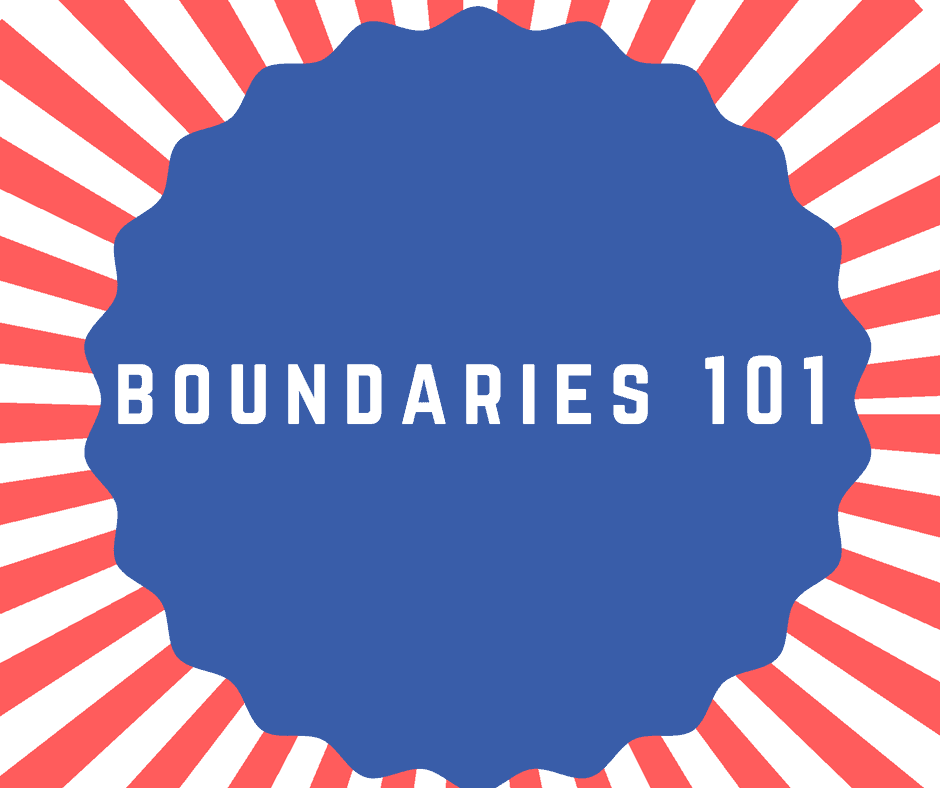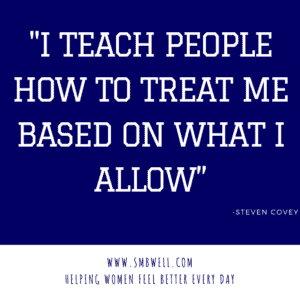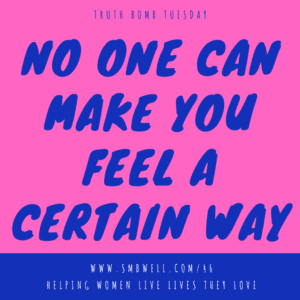Podcast: Play in new window | Download
Subscribe: Apple Podcasts | Spotify | Amazon Music | RSS | More
Boundaries without the B*tchiness
What comes up for you when you hear the word boundary? For some, it’s another B word….b*tch. For others, it’s: “why would I be concerned with boundaries?” Listen in.
- Boundaries are the foundation upon which healthy relationships thrive.
- They are something I use every day in multiple ways without BS.
- They are the reason why I feel heard and understood in my relationships.
- Furthermore, they are the one thing that, when instituted correctly, bring peace and ease to my clients’ lives.
Boundaries in our Society
In our society, boundaries are not modeled. Boundaries were not modeled at home, in the media, or in school. It makes sense that many of us as adults find ourselves in codependent, boundary-less relationships. As such, it’s important for us to learn how to set healthy boundaries so that we don’t continue to pass this codependent legacy down to our children. Being in boundary-less relationships leads us to feel disconnected, resentful, and bitter. None of those are desired feelings states for me, nor are they feelings that I desire my kids to accept as normal and common. Boundaries to the rescue.
What Is (and Isn’t) a Boundary
A boundary is not an ultimatum. A boundary is not a punishment. A boundary is quite simply a statement of how you ask to be treated in a relationship. In fact, I like thinking of them as guidelines. Guidelines of what is acceptable to me if you are in relationship with me. My intent in setting a boundary is not to control the other person or to discipline them.
In fact, a healthy boundary is a way that we take care of and protect ourselves. A healthy boundary is not made from a place of anger and it is not an attempt to control the other person.
An example of a healthy boundary for me is that I don’t allow people in relationship with me to yell at me. If someone started yelling at me, me setting a boundary would look like me saying: “If you keep yelling at me, I’ll hang up the phone”. I am setting the guideline for how I will be treated with a clear follow through. I am not telling the other person what to do. I am telling the other person what is acceptable to me and what I will do. The person can go ahead and yell at other people in other relationships in his or her life but not in a relationship with me.
Boundaries are a part of healthy, thriving, connected relationships.
Listen in to learn:
- Where you may already have unspoken boundaries (and why this mattes)
- How to set boundaries with your mom, your dad, your spouse, your neighbor, and your kids
- How boundaries support patriarchy
- How codependency and boundaries are linked
- How people pleasing may be the reason why you don’t have as many boundaries as you need
- Specific language to use when setting a boundary
- How the message to “Be a good girl” is prioritized over “Be Honest” or “Your Needs Matter”
 This is hard!
This is hard!
Yes. When you begin to make boundaries, it will feel hard. You’re not alone. This is not something that was modeled for us and so it will feel uncomfortable. That doesn’t mean you’re doing something wrong. All growth feels uncomfortable. Choose to become a boundary boss. To learn all you can about boundaries so you draw your own line in the sand of familial and societal disfunction: The Disfunction Stops Here.
This is where my coach helped me and where I help my clients. Reach out. One person can change a relationship and, if you’re unhappy or triggered, it’s up to you. You’re responsible for your happiness, not this other person.The reason you’re frustrated and resentful is because you don’t have proper boundaries and you haven’t been speaking your truth. Having a coach to help you with that responsibility will help you move more quickly through the feeling of discomfort (and into peace and ease).
You’re not meant to do this alone
I’ve coached many clients who set boundaries. Talk about freedom. My monthly membership is a great place to get this support, as is scheduling a one-on-one session. I would not have the amazing connected relationships I have today without the support and outside unemotional feedback from my coach to help me see where my old patterning and upbringing was keeping me stuck. There’s a reason why I’m routinely asked to speak about boundaries and relationships. If you’re struggling, choose to take this as a sign to stop doing what you’ve been doing and reach out to an expert. What’s the other alternative? Waiting and thinking if you keep doing what you’re doing, you’ll get a different result? Think that’s the actual definition of insanity.



 This is hard!
This is hard!



